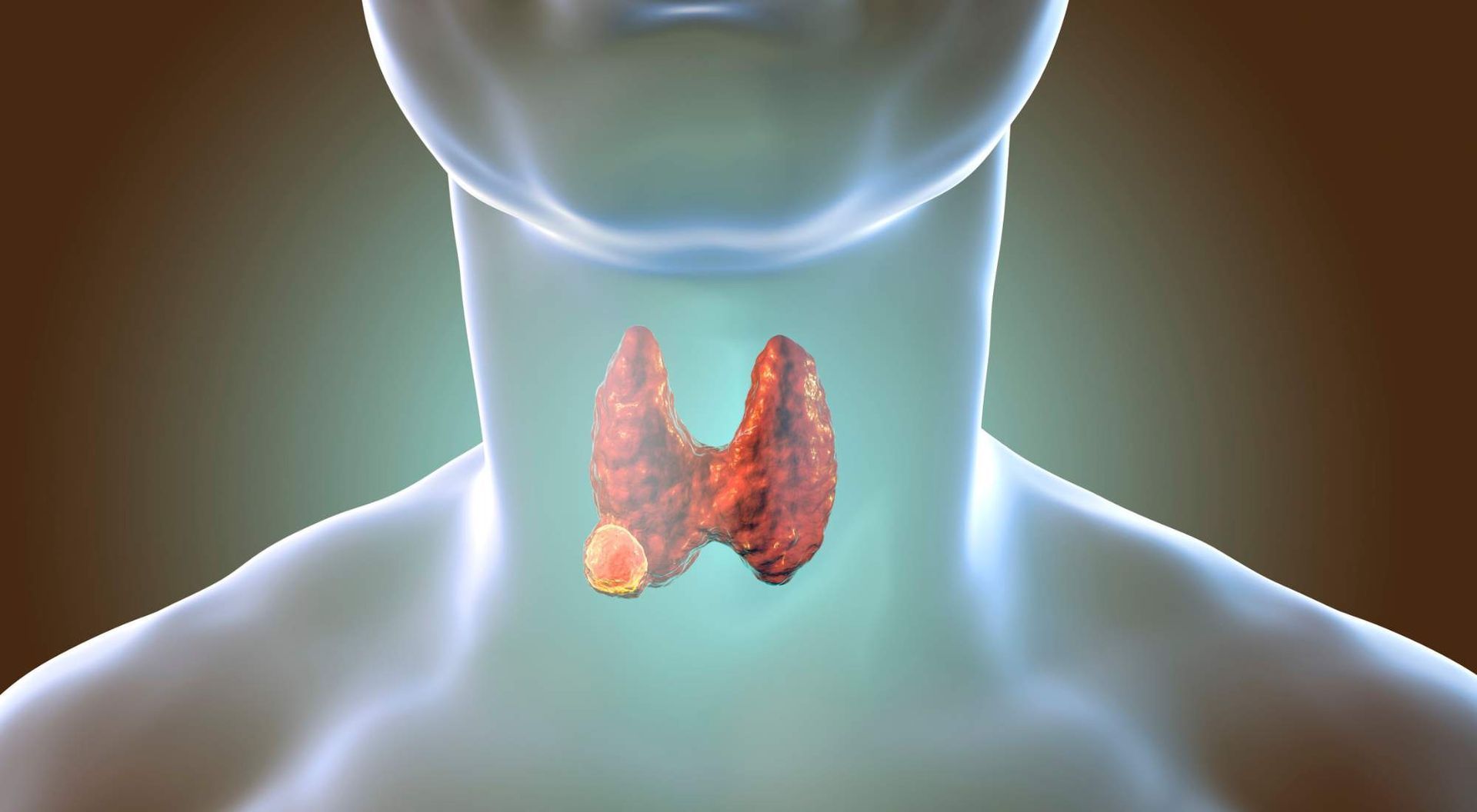Does Magnesium Help With Thyroid Issues? A Vital Key to Optimal Thyroid Health
"The content below is not intended to be a substitute for professional medical advice, diagnosis, or treatment. Always seek the advice of your physician or other qualified health provider with any questions you may have regarding a medical condition."
Once you’ve begun to learn about the multitude of factors involved in thyroid health, it can be difficult to keep it all straight, especially as it pertains to you and your unique health situation. Like pawns in a chess game, certain elements play a key role and may make the defining difference in the result.
Magnesium is one of these key players, though it is easy to underestimate. Perhaps we take for granted that we’re getting everything we need if we just eat healthily. With study and guidance, though, you can recognize with greater clarity how magnesium is part of the body’s strategy to enable thyroid function and efficacy.
HealthierU examines how magnesium operates in the body, specifically its influence on the thyroid, and explains how prioritizing its inclusion in your health routine benefits you.
Table of Contents
How Does Magnesium Work in the Body?
Half of the body’s stores of magnesium reside in the bones. This mineral is essential for many biochemical processes in the human body. The most critical are:
- Bone and teeth formation
- Nerve and muscle function
- Blood pressure regulation
- Blood sugar control
- Calcium and potassium metabolism
- Energy (ATP) production
- Function of enzymes, especially those involved in DNA repair and thyroid hormone production and conversion
The latter function is most pertinent to our focus on the thyroid, but the others are also relevant because thyroid issues can disrupt them all.
Signs of Magnesium Deficiency
Some early signs of magnesium deficiency may occur even before blood tests show low magnesium levels. These include:
- Family or personal history of various conditions, such as:
- Asthma
- Kidney stones
- Heart disease/failure
- Mitral valve prolapse
- Diabetes
- Autism
- Mental conditions, such as:
- Depression
- Irritability or anxiety
- Difficulty focusing
- Difficulty swallowing
- Acid reflux
- Fatigue
- Insomnia
- Constipation
- Restless leg syndrome
- Hand cramps
- Frequent headaches/migraines
- Heart palpitations
- Muscle twitches
Other — more serious but less common — symptoms include seizures, numbness, abnormal heart rhythms, and muscle contractions. These might indicate a more significant imbalance involving potassium and calcium as well.
Does Magnesium Help With Thyroid Issues?
Yes! Magnesium does help with thyroid issues in many ways:
- Facilitating the release of thyroid-stimulating hormone (TSH)
- Aiding in the conversion of T4 to T3
- Improving gut health
- Managing autoimmunity
- Supporting immune function
- Providing anti-inflammatory benefits
- Lessening fatigue and enhancing energy
- Reducing insomnia and improving sleep
HealthierU guides its clients as they seek holistic nutrition solutions for
thyroid imbalances. Contact us today to learn how we can help you find relief from your symptoms.
8 Ways Magnesium Helps With Thyroid Function
#1: Assists in TSH Release
Thyroid-stimulating hormone (TSH) is responsible for activating the production of thyroid hormones. TSH levels are generally high in hypothyroidism and low in hyperthyroidism, but magnesium is instrumental in normalizing these levels.
Magnesium, which stimulates uptake of iodine by the thyroid, may give rise to the increase in TSH levels in patients with low levels of the hormone.
#2: Aids T4-T3 Conversion
The thyroid hormone T3 (triiodothyronine) is the active form that is usable by cells. T4 (thyroxine) must be converted to T3 by a process of deiodination, which involves the removal of one iodine atom.
Researchers have discovered that magnesium helps mediate this conversion by increasing the concentration of glutathione, which is a
cofactor in the deiodination process.
Evidence for this mechanism includes decreased levels of T3 in patients with glutathione deficiency.
#3: Improves Gut Health
Optimal gut health is important to prevent the leakage of toxins into the body and to allow adequate absorption of nutrients. One of magnesium’s jobs is to activate and regulate digestive enzymes responsible for breaking down food. Magnesium deficiency may result in poor digestion and absorption of nutrients.
Magnesium also works to maintain gut motility, which is responsible for moving food through the intestines. Without adequate amounts, constipation and bloating may result, leading to a leaky gut and thus chronic, low-grade inflammation.
This hardworking element also contributes to the maintenance of healthy gut
microbiota, helping to ensure proper nutrient absorption and metabolism as well as train our immune system.
#4: Manages Autoimmunity
In an autoimmune disease, the immune system recognizes self-cells as foreign and thus mounts an attack against them. Hashimoto’s and Graves’ disease are both autoimmune conditions that affect the thyroid, leading to hypothyroidism or hyperthyroidism, respectively.
Immune action is essential to fighting off foreign invaders, but when it cannot be controlled or resolved, a chain reaction occurs that leads to chronic inflammation and, eventually, autoimmunity.
Magnesium plays two critical roles in controlling inflammation:
- Serving as a cofactor for enzymes involved in regulating the immune response
- Influencing cytokine production
Low magnesium levels could be
associated with the high levels of thyroid antibodies characteristic of autoimmune thyroid disease. The inference from this association is that adequate magnesium levels may help prevent the development (or slow the progression) of autoimmune diseases. These include those that cause thyroid dysfunction, or others, such as celiac disease or Addison’s disease.
#5: Supports Immune Function
The immune system is a very complex network of cell types, enzymes, and ions that work together to fight both specifically and generally against perceived stressors/pathogens. Magnesium’s influence is extensive, involving:
- Facilitation of immunoglobulin production
- Vitamin D synthesis and distribution (essential for immunity against viruses)
- Preservation of the active structure of DNA, RNA, and ATP
- Regulating the pH and calcium levels inside cells
- Supporting the efficient operation of T cells, which help fight infections and cancer
These are just a few of the ways magnesium is essential to cell function. Without these contributions, cells — including immune cells — can’t function properly.
#6: Provides Anti-Inflammatory Benefits
Chronic inflammation — whether mediated by anti-thyroid antibodies in Hashimoto’s disease or by the destructive effects of hypothyroidism — puts stress on the body’s immune system and all body organs. Magnesium battles this in two main ways:
- By stimulating antioxidant defense: Free radicals cause damage to living cells by reacting with stable molecules and disrupting their function. Antioxidants break down free radicals, thus protecting cells from damage. Magnesium helps to increase the production and action of the antioxidant glutathione, particularly in patients with diabetes, which is closely linked with thyroid issues.
- By reducing inflammation markers such as
C-reactive protein and
interleukin-6: These are normally useful markers because they indicate whether the body is fighting an infection. But if the synthesis of these proteins is dysregulated, it can cause damage to the body by inducing chronic inflammation and autoimmunity.
#7: Lessens Fatigue and Enhances Energy
Fatigue is one of the symptoms of hypothyroidism that is particularly difficult to cope with. It is caused by the disruption of energy metabolism characterized by low thyroid hormone.
Magnesium, however, is instrumental in the production and function of the body’s main form of energy on the cellular level, ATP. This molecule must be bound to a magnesium ion in order to be biologically active. Getting enough magnesium can help ensure that the body has the necessary materials to synthesize adequate energy and use it, thus reducing fatigue.
Magnesium can also increase your capacity for exercise by:
- Reducing muscle cells’ need for oxygen during exercise
- Assisting in protein synthesis and energy metabolism
- Enhancing the movement of glucose from the blood into the muscle cells and the breakdown of fatigue-inducing lactate
#8: Reduces Insomnia and Improves Sleep
Magnesium supplementation is thought to be useful for relieving insomnia because of studies showing improved sleep quality and duration with increased magnesium intake.
The exact mechanism is unknown, but it is likely that magnesium has this effect because of its regulatory role in the circadian clock or in the levels of various brain chemicals that control how relaxed or tired one feels.
For example, magnesium may help reduce
anxiety symptoms and thus make falling and staying asleep easier in those who get adequate amounts from food or supplements.
What Sources of Magnesium Help With Thyroid Issues?
If you have any of the symptoms of magnesium deficiency, consider getting your magnesium levels tested and adjusting your diet to include more magnesium. It’s important to do this in consultation with a healthcare provider because magnesium toxicity can result from consuming too much of the element.
The best food sources of magnesium are:
- Leafy greens like spinach and kale
- Nuts and seeds
- Whole grains
- Dairy products
- Legumes
- Fortified cereals
- Avocados
- Bananas
- Dark chocolate
The
recommended daily allowance of magnesium for men above the age of 30 is 420 mg. For women, the recommendation is 320 mg. These numbers vary according to age and health status. Pregnant or lactating women, for example, require higher amounts.
Do Magnesium Supplements Help With Thyroid Function?
Although it is preferable to take in magnesium from nutrient-rich food sources, supplements might be helpful if you are unable to obtain adequate magnesium from your diet. They are available in various forms, including:
- Magnesium citrate: This is often used to help clear the bowels because it works as an osmotic laxative, which draws water into the colon. It should not be used long-term, as it can cause the bowels to lose motility.
- Magnesium glycinate: This mixture of magnesium and the amino acid glycine is easily absorbed by the small intestine, making it easier for the body to tolerate than other forms of magnesium.
- Magnesium malate: This mixture of magnesium and malic acid is also well tolerated by the digestive system and tends to help relieve headaches, heartburn, digestive discomfort, and constipation.
If supplementation is necessary in your case,
HealthierU can recommend the most appropriate supplement form for your personal profile.
HealthierU: New York’s Expert in Holistic Nutrition for Thyroid Disorders
Whether you are looking to supplement or eat more foods with magnesium, let HealthierU be your guide to better thyroid health. Dr. Donna Sergi has provided holistic nutrition guidance and chiropractic services to her clients for 25 years.
If you would rather cut right to the cause of your ailment rather than just mask the symptoms with synthetic medication, consider visiting HealthierU. Our priority is to deliver personalized care in the safest, most natural way possible.
We assure you, you will not be disappointed with Dr. Sergi’s professional care. You will receive thorough and customized guidance, especially regarding diet and lifestyle habits. Transform your experience of living with a thyroid disorder into a positive opportunity to elevate your health in every way.
Reach out today by visiting our website or by calling HealthierU to begin your journey toward optimal wellness.






